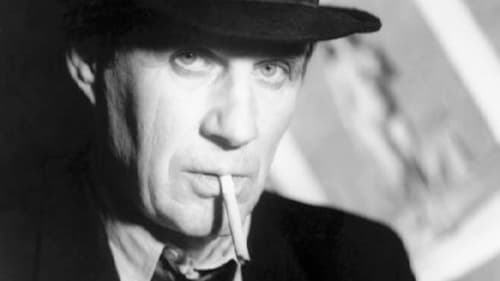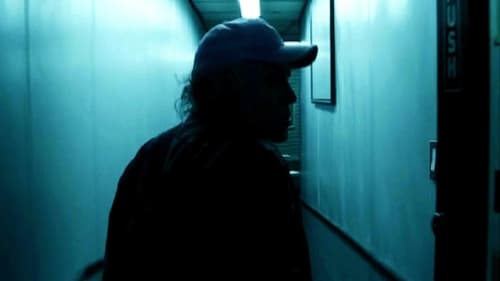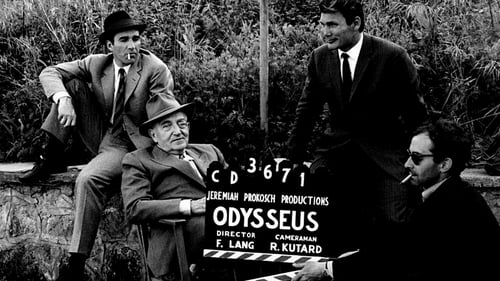Janine Bazin
Nacimiento : 1923-01-29, France
Muerte : 2003-05-31

Producer
El documental rememora la carrera cinematográfica del actor y realizador austríaco incluyendo extractos de las películas por él dirigidas.

Producer
Documental dedicado a la vida y obra de este genio del cine, prematuramente fallecido.

Producer
Intimate portrait of Abel Ferrara: the result is an eccentric road movie, with the restless film maker as a charming, shabby guide around New York by night.

Producer
Retratado por Jean-André Fieschi, Jean Rouch nos invita a compartir la filosofía que aprendió del pueblo de los Dogón: “Hacer como si...”. Esta invitación a la fabulación y al disfraz sirve de punto de partida al viaje que nos lleva hasta las orillas del río Níger, donde Rouch filma a sus amigos Damouré y Tallou en La vaca maravillosa, a partir de una idea del difunto Lam, a cuyo espectro pedirán permiso para realizar el film. Un bello retrato del etnógrafo-cineasta, padre del documental moderno, que aprendió a filmar la realidad mientras la inventaba con sus protagonistas.

Producer
Made for "Cinéma, de notre temps" series. Interview with Georges Franju (1912-1987), a figure of immense importance in the history of French cinema, not primarily for his films (exceptional though many of these are) but for being the co-founder, with Henri Langlois, of the Cinémathèque Française in 1936, France's most famous and important film archive.

Producer
Janine Bazin and André Labarthe approached Chantal Akerman about making a film for the series; eagerly, Akerman proposed a number of filmmakers—but all had already been done. So she suggested…“How about me?” Akerman creates a fascinating self-portrait that takes us through her career, aided by critics Emmanuel Burdeau and Jean Narboni and filmmaker Luc Moullet.

Creator
Paulo Rocha catches up with his “beloved subject” in Porto, where he made Douro, Faina Fluvial in 1929, and where today Oliveira reminisces about the figure of his father, his first experience of cinema as an actor, his past as a racing driver, his first technical experiences…

Producer
Paulo Rocha catches up with his “beloved subject” in Porto, where he made Douro, Faina Fluvial in 1929, and where today Oliveira reminisces about the figure of his father, his first experience of cinema as an actor, his past as a racing driver, his first technical experiences…

Producer
Made for "Cinéma, de notre temps" series. In a peaceful residence near the Loire River, Chabrol raised his favorite characters : monsters. In this documentary, we can see him actively working on the adaptation of Simenon's novel "Betty", and answering the questions posed by Jean Douchet (his former colleagues at the magazine "Cahiers du Cinéma"). Excerpts from The Butcher (Le Boucher), Violette Nozière, The Hatter's Ghost (Les Fantômes du chapelier) and Masks (Masques) will punctuate their meaningful and witty conversation.

Producer
This film of interviews with the film director Jacques Rivette was produced in collaboration with Serge Daney, film critic from “Cahiers du cinéma”, then of “Liberation”. In the course of their conversations, the two speakers discuss Rivette’s career, his relationships with the other film makers of the new wave, his use of “mise en scene” and his working with actors.

Producer
Amazing documentary shows rarely seen side of a master director. 1990 was a very good year for Martin Scorsese. After making a diverse group of films in the 80s, he reunited with Robert DeNiro for "Goodfellas" and later that year shot a segment for "New York Stories", an anthology film of three shorts by Scorsese, Woody Allen, and Francis Ford Coppola. During the editing, the French documentary series "Cinéma, de notre temps" filmed a documentary on the director, and it's a fascinating glimpse into his life, personality, and working habits as he edits his short with long-time collaborator Thelma Schoonmaker.

Producer
A documentary about American director David Lynch from the Cinéma, de notre temps series.

Self
Gérard Courant applies the Lettrist editing techniques of Isidore Isou to footage of late 70's pop culture. Courant posits that his cinema offers an aggressive détournement to the French mainstream, reifying a Duchampian view of film: "I believe in impossible movies and works without meaning... I believe in the anti-movie. I believe in the non-movie. I believe in Urgent... My first full length movie that is so anti-everything that I sometimes wonder if it really does exist!"

Documentation & Support
Henri Langlois, founder and director of the Cinémathèque française, is interviewed in his museum at the Palais de Chaillot and talks about cinema. “Henri Langlois's anti-courses” are made up of a set of short films, or more exactly of chapters. Each chapter is devoted to a filmmaker or to a significant pivotal period of such or such a country and of such or such style, or to a group of men whose action was, at one time, decisive for the course of cinema.

Producer
Documental que forma parte de la serie francesa "Cineastas de nuestro tiempo". En esta entrevista de Guy L. Coté realizada en 1967 y presentada en la TV francesa en 1972, Norman McLaren relata su trayectoria pionera dentro del cine de animación, que se inició en el Londres de los años 30, llegando a Montreal tras pasar antes por Nueva York. La plasmación que de ello hace André S. Labarthe, derivada de las mismas formas de las propias películas de McLaren, acaba por ofrecer una original propuesta documental.

Producer
Shot while he was preparing Un Flic, Melville carefully leads Labarthe through the trajectory of his career, from his daring debut The Silence of the Sea to his great successes of the 1960s, Le Samourai and Le cercle rouge. Labarthe also details the development of the Melville “myth: the dark glasses, the trenchcoats, the Ford Mustang, and his general tough-guy demeanor. This documentary first appeared as an episode on the French television series "Cinéastes de notres temps".

Producer
Episode of the French television series about the work of François Truffaut.

Producer
In the third part of a Cinéastes triptych on Jean Renoir, the director sits alone in a cinema analyzing scenes from La Marseillaise and The Rules of the Game, and discussing his editing and storytelling techniques.

Producer
Speaking as scenes from Anatahan are shown, for which he directed, photographed, wrote, and provided voiceover narration, film director Josef von Sternberg takes the viewer on a fantastic filmmaking journey in this presentation of Cinéastes de notre temps: Josef von Sternberg - From Silence Comes Another.

Producer
Episode of the French television series about the work of film director Jacques Becker. (A 27-minute excerpt from this show appears on the Criterion Collection's release of "Casque d'Or." )

Producer
An hour-long discussion between Fritz Lang and Jean-Luc Godard in which they discuss a variety of art forms, the role of the cinema, their collaboration together, and much more. (Filmed in 1964 but released for TV in 1967.)

Producer
Second in the documentary trilogy from mastermind Jacques Rivette, featuring a conversation between Jean Renoir and Michel Simon

Producer
The first of three documentaries by Rivette on Jean Renoir.

Producer
Celluloid and Marble is based on Rohmer's own articles published in "Cahiers du cinéma", discussing film in relation to the other arts, maintaining that, in an age of cultural self-consciousness, cinema was “the last refuge of poetry” - the only contemporary art form from which metaphor could still spring naturally and spontaneously.

Producer
François Truffaut, que se muestra en su casa y en la sala de proyección, comenta sobre sus primeras películas, de "Les Mistons" a "La Peau Douce", lo que revela la conexión entre sus opiniones como crítico y su trabajo como cineasta. Él habla con franqueza sobre su pasado como aficionado al cine, su colaboración con Cahiers du Cinéma, los realizadores que le han influido y su admiración por el cine estadounidense.

Producer
An episode of the television program Cinéastes de notre temps in which the director gives his first on-camera interview.

Producer
Three-part interview with French film director Jean Renoir, conducted by French New Wave director Jacques Rivette.





















